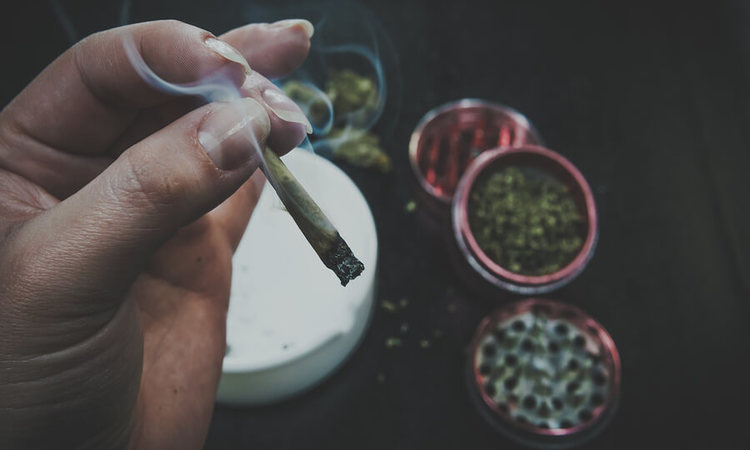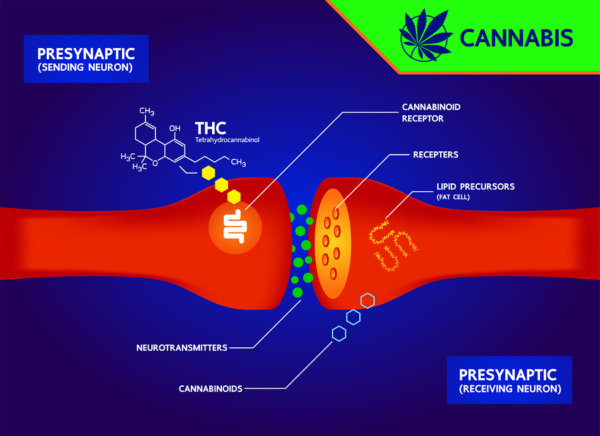
How Long Does a Marijuana High Last? – A typical high caused by smoking marijuana lasts about two hours. Ingesting marijuana, however, can trigger a high that lasts longer, perhaps up to 6 hours. Either way, psychomotor impairments may persist after the initial effects have subsided. These include altered perception of time, impaired hand and eye coordination, and gaps in memory.
The effects of smoking marijuana are usually noticeable within a few minutes after the first use, and peak after about 30 minutes. Most effects of marijuana will return to normal within five hours after the last use, but particularly potent strains may induce effects for up to 24 hours.
The duration of the high hinges on several factors, including tolerance. For example, a person who uses marijuana daily will not experience a high for as long as someone who uses it only occasionally.
Effects of a Marijuana High
Various effects can occur during a high, which vary in their intensity and nature. Among the most common effects of marijuana is an increase in sensations and clarity of perception. Visual perception can be altered, colors appear brighter, and patterns are more easily recognizable.
Other possible effects of a marijuana high include the following:
- Increased appetite
- Changes in pain perception
- Altered time perception
- Intensified sense of taste, smell, and hearing
- Greater sensitivity to heat, cold, and pressure receptors
- Objects appear more visually well-defined
How Does Marijuana Act on the Brain?

The active ingredient in marijuana is delta-9-tetrahydrocannabinol (THC), the psychoactive agent that induces marijuana’s effects. THC achieves this by attaching to cannabinoid receptors in the nervous system. Once there, it interferes with chemicals involved in cognition, motor skills, and other physiological processes.
Certain regions of the brain, including the hippocampus, the cerebellum, and the cerebral cortex, have higher levels of cannabinoid receptors. When a person uses marijuana, the following functions may be affected:
- Concentration
- Coordination
- Memory
- Pleasure
- Sensory information processing
- Perception of time
Additionally, a person using marijuana may also become hyperaware of regular, automatic movements, as well as motor control processes. However, the effects of cannabis on a person’s mood can vary from person to person and will depend on the strain.
In general, emotions may be muted or exaggerated, which can cause the user to act inappropriately or strangely in otherwise normal situations.
Mental Effects
Marijuana effects are dependent on several factors related to the method of administration and the drug’s quality in general. For example, if marijuana is consumed orally, effects will be milder but will persist for several hours. Keep in mind that a first-time marijuana user may not experience the same effects as a chronic user.
Common mental effects of THC include the following:
- Mood changes
- Impaired memory
- Difficulty with thinking and problem-solving
- Impaired coordination and motor skills
High dose THC strains may also induce hallucinations and delusions—psychosis. In fact, chronic marijuana use has been associated with mental illness among some users, with effects such as transient hallucinations, paranoia, and a worsening of symptoms in users with schizophrenia.
Furthermore, marijuana use has been linked to other mental health disorders, such as depression and anxiety. Whether use itself causes or exacerbates these problems is not clear.
Physical Effects
Acute physical effects of marijuana use include accelerated heart rate and either elevated or lowered blood pressure. These symptoms occur because, within a few minutes after marijuana is inhaled, a person’s heart rate speeds up, and the breathing passages loosen and become enlarged. The heart rate may increase by 20-50 beats per minute or more. Additionally, blood vessels in the eyes dilate, making them appear bloodshot.
The main body effects of marijuana include:
- Head rush or dizziness
- Increased heart rate
- Changes in blood pressure
- Slowed digestion
Long-term effects include problems related to the cardiovascular system. For example, marijuana raises the heart rate for up to 3 hours after smoking. This effect increases the risk of a heart attack. Older people and those who have heart problems may be at a higher risk.
Other problems related to long-term marijuana use may include:
Breathing Difficulties
Marijuana smoke irritates lungs, and people who smoke marijuana chronically can have similar breathing problems as those who smoke tobacco. These problems include persistent cough and phlegm, more frequent lung illness, and an increased risk of lung infections.
Intense Nausea and Vomiting
Although rare, marijuana can cause a condition known as cannabinoid hyperemesis syndrome. This condition is characterized by regular cycles of severe nausea, vomiting, and dehydration. If severe enough, this condition may require emergency medical attention.

Factors That Influence Effects
One major factor that will influence the effects of marijuana is the strain used. Some strains affect the brain and body more than others. Still, the way cannabis affects a person will largely depend on individual factors, both physical and psychological, including the following:
- Age, height, and weight
- General health status
- Amount of THC in the dose
- Level of tolerance
- Presence of other substances
- Environment
- Method of administration
- Personal expectations
- Previous marijuana use
Time in the Body
THC reaches the bloodstream quite rapidly after marijuana is smoked. If marijuana is consumed orally, it takes longer to be absorbed into the blood—usually from 20 minutes to 1.5 hours.
Once in the blood, THC is rapidly broken down into dozens of molecules known as metabolites. The majority of THC (65%) is excreted through feces, while over 30% leaves the body through the urine.
In urine, THC can be detected up to 3 days after the last dose of marijuana.
Chronic use, however, can be detected weeks or months after last use. As with other drugs, the time that marijuana can be detected in hair follicles is a minimum of 90 days.
When marijuana is ingested, some of the marijuana metabolites are stored in the fatty tissues. This effect is why marijuana use can be detected for more extended periods in chronic, regular users. Rather than being highly water-soluble, the metabolites remain in fat cells and are slowly released over time.
Consequences of Marijuana Abuse
Compared to individuals who don’t use marijuana, those who frequently smoke marijuana in excessive amounts report lower overall life satisfaction, more relationship issues, and poorer mental and physical health in general.
Marijuana users also report poorer academic and career success. For example, marijuana use has been associated with a higher likelihood of dropping out of school. And, it has also been linked to more job absenteeism, accidents, and injuries.
Signs of Marijuana Use Disorder
One of the first signs of a problem is dependence. Many people who use marijuana for a long time and attempt to quit report withdrawal symptoms that discourage them from stopping. These symptoms include the following:
- Anxiety
- Depression
- Cravings
- Decreased appetite
- Irritability
- Insomnia and nightmares
Another sign is that a person can no longer control their use. It’s estimated that nearly one-third of regular users are at least psychologically addicted.
Treatment for Marijuana Abuse
In general, marijuana abuse and addiction aren’t considered to be as serious as many other substance addictions, such as cocaine, heroin, or meth. That said, marijuana use can be harmful to one’s health and well-being. It can also cause other problems in life, such as relationship strain and difficulties with work or school.
If you believe you have an addiction to marijuana and find it difficult to quit on your own, contact us today to discuss treatment options! We can help you stop the cycle of drug abuse and foster the fulfilling life you deserve!
READ THIS NEXT: Kratom Addiction